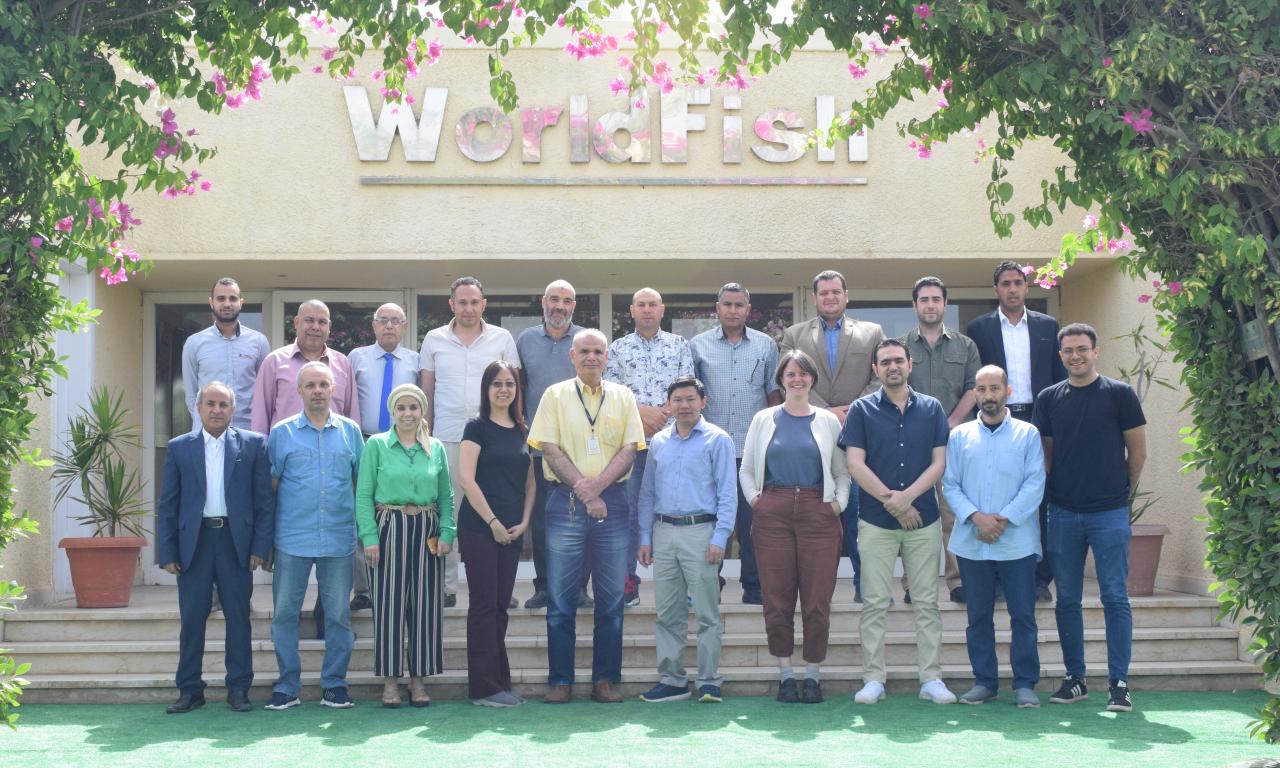
- Despite being the largest aquaculture producer in Africa, Egypt’s capture fisheries and aquaculture faces several pressing challenges, particularly on the climate change risk.
- By employing foresight modeling techniques, stakeholders can anticipate and understand the potential impacts of climate change on the fish sector, thus enabling the development of proactive intervention strategies.
Foresight and economic modeling are crucial for strategically positioning fish within global food systems, understanding market dynamics, and supporting countries in developing fisheries and aquaculture development and investment plans. Under this research theme, WorldFish collaborates with CGIAR centers such as the International Food Policy Research Institute (IFPRI) with the IMPACT model, universities like the Australian National University with the newly refined AsiaFish model, and national partners to enhance fisheries and aquaculture development. This approach informs policy-making and optimizes supply and demand projections, as recently demonstrated with the newly refined AsiaFish modeling in Egypt.
Collaborative Workshop in Egypt Explores Climate Change Impacts
A recent foresight technical workshop held by the CGIAR Initiative on Foresight and the World Bank project on the “climate change impacts on capture fisheries and aquaculture in Egypt and hosted by WorldFish Egypt, convened 16 key stakeholders, including farmers, farm owners, researchers from the Agriculture Research Center (ARC) and Central Laboratory for Aquaculture (CLAR), and professors from the National Institute of Oceanography and Fisheries (NIOF) and the U.S. Soybean Export Council (USSEC, to validate the business-as-usual future fish projection and delve into the potential impacts of climate change on Egypt's capture fisheries and aquaculture.
Fish has been a longstanding traditional component of the Egyptian diet and is the main source of animal protein for lower-income groups. Per capita fish consumption has nearly tripled in the last three decades. Egypt is the largest aquaculture producer in the continent and ranked seventh in the global aquaculture output in 2021. The aquaculture industry in Egypt far exceeds its wild catch industry, accounting for 80% of the nation’s total fish production. Despite the immense potential of aquaculture, Egypt is facing several challenges constraining stronger aquaculture growth, notably: 1) availability of quality fish feeds and seeds; 2) scarcity of land and water resources; 3) volatility of fish prices; and 4) risks of fish disease outbreak. In addition, there has been a decline in wild marine and freshwater fish stocks in the past decade. Furthermore, climate change, variability, and extreme weather events are compounding threats to the sustainability of capture fisheries and aquaculture development in marine, brackish, and freshwater environments.

Harnessing Foresight Modeling for Sustainable Fisheries Development
By employing foresight modeling, stakeholders can systematically analyze the complex interplay of factors influencing fish supply and demand, including climate change impacts, resource constraints, market dynamics, and technological advancements. This analytical approach enables the identification of potential risks and opportunities, allowing for the development of evidence-based policies, investment strategies, and technological innovations to address current constraints and capitalize on emerging trends.
“The involvement of key stakeholders and aquaculture actors has been at the forefront of WorldFish’s leading role in Egypt for developing the blue sector. Our mission is to pave the way for the development of the aquaculture and fisheries sectors while building bridges of knowledge, networking, and understanding between governmental and public institutions and the private sector. We aim to gain diverse perspectives and approach effective solutions that can be addressed at multi-sectoral levels, particularly on the impacts of climate change," said Ahmed Nasr-Allah, Country Director of WorldFish, Egypt.
During the workshop, WorldFish’s scientists, Nhuong Tran, Senior Scientist (Applied Economist), Sustainable Aquatic Food Systems, and Chin Yee Chan, Scientist, Sustainable Aquatic Food Systems, presented past trends and future projections across various dimensions of Egypt's fish sector. Their analysis delved into key aspects such as capture fisheries, aquaculture production, fish import and export, and fish consumption, considering the intricate interactions between different fish groups, aquaculture production systems, and geographical locations of capture fisheries.
In their analysis, the scientists examined historical data and projected future trends, considering the complex interplay of biophysical and socioeconomic factors. This holistic approach included considerations of environmental factors, ecosystem carrying capacity, and the national government's development targets for fisheries and aquaculture. Moreover, Mohamed Fathi, Scientist, WorldFish, Egypt, had supported the Arabic-English translation along with the scientists who facilitated interactive discussions with workshop participants to identify sector-specific challenges and opportunities. Together, they explored alternative scenarios, with a particular emphasis on assessing the potential impacts of climate change on both capture fisheries and the aquaculture sector.

